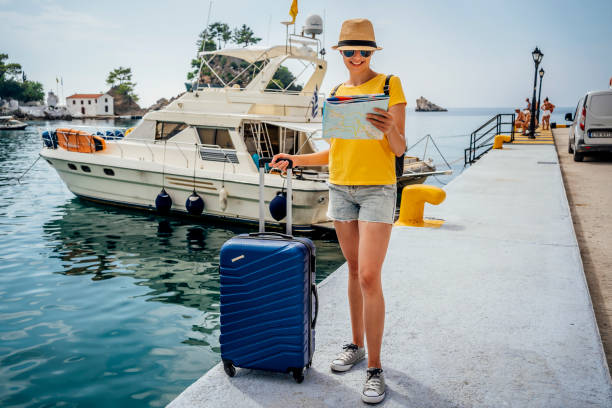Tips and Techniques
Travel Planning Techniques: Expert Tips for Organizing Your Perfect Getaway
Traveling offers the opportunity to explore new destinations, experience different cultures, and create unforgettable memories. However, the key to a smooth and enjoyable trip lies in thorough and effective planning. Whether you’re embarking on a leisurely vacation, an adventurous expedition, or a business trip, these expert tips will help you organize your perfect getaway and ensure that every aspect of your journey is well-coordinated.
1. Define Your Travel Goals
1.1. Determine Your Trip Type
Understanding the purpose of your trip is essential for effective planning:
- Leisure: If you’re traveling for relaxation or exploration, focus on destinations that offer activities and attractions aligned with your interests.
- Adventure: For adventurous trips, identify destinations with outdoor activities such as hiking, diving, or skiing.
- Business: When traveling for work, consider proximity to meetings, necessary amenities, and potential networking opportunities.
1.2. Set Clear Objectives
Establish specific goals for your trip:
- Relaxation: Look for destinations with serene environments, spas, and leisure activities.
- Cultural Exploration: Choose locations rich in cultural experiences, such as museums, historical sites, and local festivals.
- Networking and Learning: Identify conferences, seminars, or events that align with your professional or educational interests.
2. Research Your Destination
2.1. Explore Local Attractions
Research the main attractions and activities available at your destination:
- Landmarks and Historical Sites: Visit famous landmarks, historical monuments, and cultural institutions.
- Outdoor Activities: Look for opportunities for hiking, biking, water sports, or wildlife viewing.
- Local Cuisine: Explore popular restaurants, street food, and local markets to experience the region’s culinary delights.
2.2. Understand Local Customs and Etiquette
Familiarize yourself with the local customs, traditions, and etiquette:
- Cultural Norms: Learn about local customs, dress codes, and social practices to show respect and blend in.
- Language Basics: Knowing a few key phrases in the local language can enhance your interactions and experiences.
2.3. Check Travel Advisories and Safety Information
Stay informed about safety and travel advisories:
- Government Advisories: Consult official travel advisories and safety guidelines provided by government agencies.
- Local Safety: Research local safety conditions, including health risks, crime rates, and emergency services.
3. Create a Detailed Itinerary
3.1. Plan Your Route and Transportation
Organize your travel logistics:
- Flights and Transfers: Book your flights early and arrange for airport transfers or local transportation.
- Local Transportation: Research options for getting around, such as public transport, car rentals, or ride-sharing services.
3.2. Schedule Activities and Attractions
Build a flexible itinerary that includes:
- Daily Plans: Outline your daily activities, including sightseeing, tours, and leisure time. Be sure to allow for spontaneous activities and rest.
- Reservations: Make reservations for popular attractions, restaurants, and tours to avoid long wait times and ensure availability.
3.3. Prepare for Special Events
If your trip coincides with local festivals, events, or holidays:
- Event Schedules: Check the dates and schedules of local events and plan your itinerary around them.
- Ticketing: Secure tickets or passes in advance for special events to ensure you don’t miss out.
4. Pack Smart and Efficient
4.1. Make a Packing List
Create a packing list tailored to your destination and activities:
- Essential Items: Include clothing suitable for the weather, travel documents, and personal items.
- Activity-Specific Gear: Pack gear based on your planned activities, such as hiking boots, swimwear, or business attire.
4.2. Organize Your Luggage
Efficiently pack your luggage:
- Roll or Fold: Use rolling or folding techniques to maximize space and minimize wrinkles.
- Packing Cubes: Utilize packing cubes or organizers to keep your belongings tidy and accessible.
4.3. Prepare for Security and Customs
Ensure you meet travel regulations:
- Travel Documents: Keep your passport, visa, and other essential documents easily accessible.
- Customs Regulations: Familiarize yourself with customs regulations and restrictions for your destination to avoid issues at the border.
5. Manage Your Budget
5.1. Set a Travel Budget
Establish a budget for your trip:
- Estimate Costs: Calculate costs for flights, accommodation, meals, activities, and miscellaneous expenses.
- Track Spending: Monitor your spending to stay within budget and make adjustments as needed.
5.2. Use Cost-Saving Strategies
Implement strategies to save money:
- Discounts and Deals: Look for travel deals, discounts, and package offers.
- Local Savings: Research local discounts or free activities available at your destination.
6. Prepare for the Unexpected
6.1. Travel Insurance
Consider purchasing travel insurance:
- Coverage Options: Choose a policy that covers medical emergencies, trip cancellations, and lost luggage.
- Claim Procedures: Familiarize yourself with the process for filing claims if needed.
6.2. Emergency Preparedness
Be prepared for emergencies:
- Emergency Contacts: Keep a list of emergency contacts, including local authorities, medical facilities, and embassy information.
- Health Precautions: Pack a basic first aid kit and any necessary medications. Research any health precautions or vaccinations required for your destination.
7. Stay Connected and Informed
7.1. Communication Tools
Ensure you have tools for staying connected:
- Phone and Internet: Check your phone plan for international coverage or consider getting a local SIM card or portable Wi-Fi device.
- Emergency Contacts: Keep important contact information readily accessible.
7.2. Local Information
Stay informed about local conditions:
- Weather Updates: Monitor weather forecasts to adjust your plans as needed.
- Local News: Stay updated on local news and any potential disruptions that may affect your travel.
Conclusion
Effective travel planning is the key to a successful and enjoyable getaway. By defining your travel goals, researching your destination, creating a detailed itinerary, packing smartly, managing your budget, preparing for the unexpected, and staying connected, you can ensure that your trip is well-organized and stress-free. With these expert tips, you’ll be well-equipped to embark on your perfect adventure, making the most of every moment and creating lasting memories. Safe travels and happy planning!

